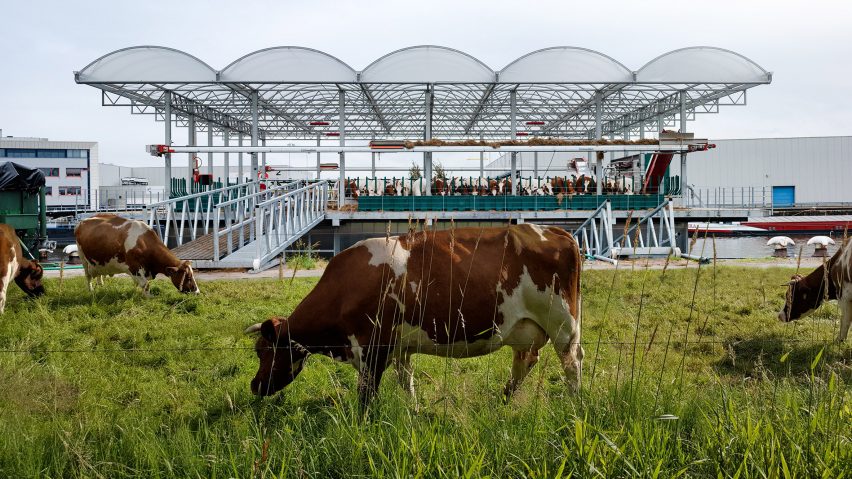
Floating Farm in Rotterdam is now home to 32 cows
A floating dairy farm has opened in Rotterdam, showing how food production can become less vulnerable to climate change.
Floating Farm was envisioned and initiated by Peter and Minke van Wingerden of Beladon, a company that specialises in waterborne architecture, and designed by architecture studio Goldsmith.
It is now home to 32 cows, producing dairy products that will soon be on sale in Lidl stores all over the city.
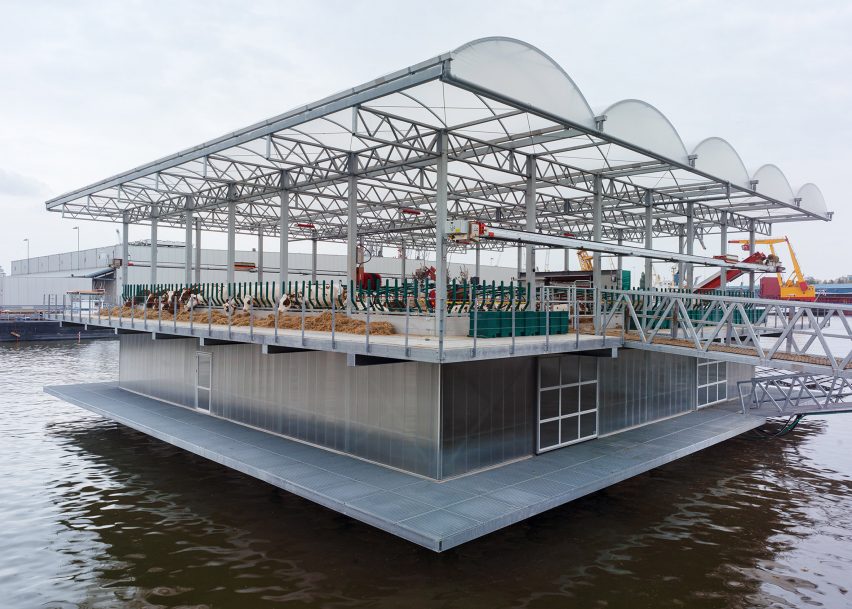
The project is designed for a future where rising sea levels mean that farmland is increasingly out of action due to flooding.
It aims to show a new way of bringing farming back into the city, with minimal impact on resources and the environment.
"We are seeing an ever-growing world population," explained the Floating Farm team. "In 2050, it is expected that two to three billion people will have been added."
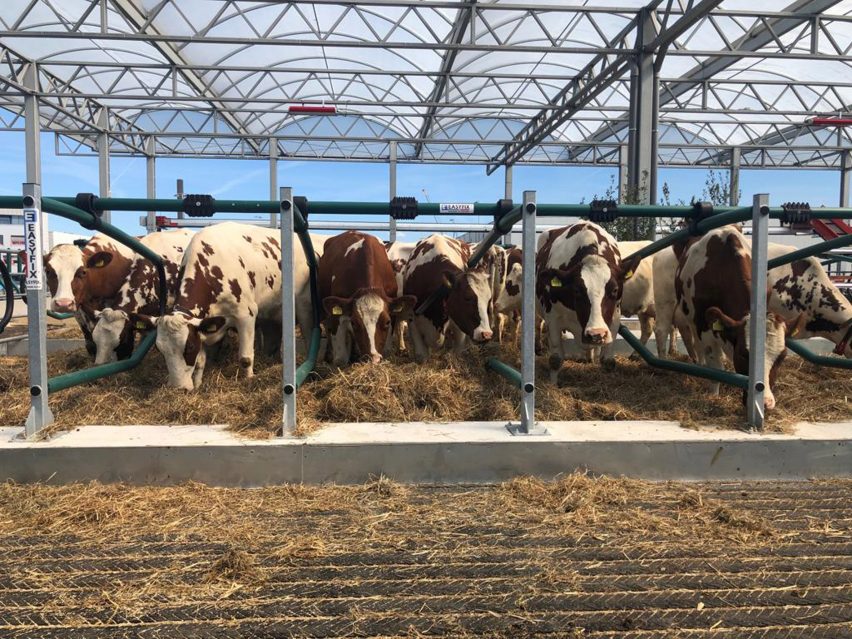
"The available area of fertile agricultural land does not grow along with the world population. In fact, fertile land is becoming increasingly scarce," they continued.
"Climate change shows that there is increasingly heavy rainfall and flooding of cities and farmland. So we will have to look at a climate adaptive system to continue feeding the city."
Minimal impact on the environment
The structure was developed to follow circular design principles. It generates all of its own electricity from floating solar panels and provides fresh water through an integrated rainwater collection and purification system.
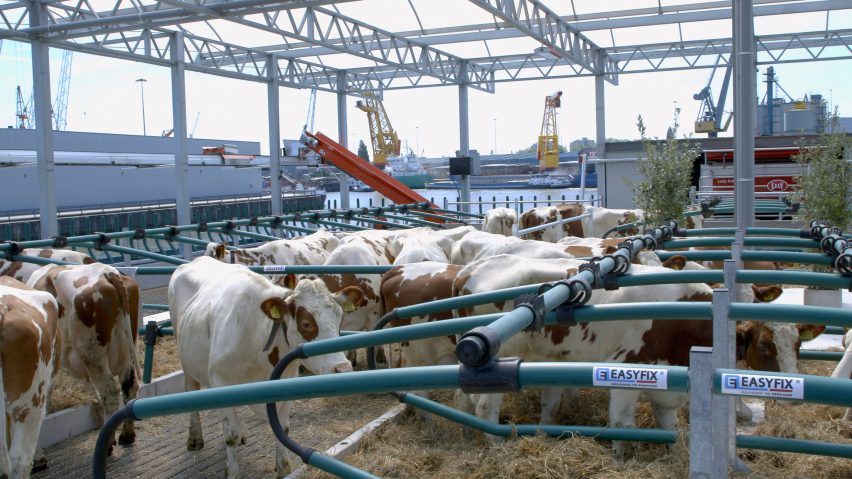
The cows are fed with grass from playing fields and golf courses in the city, along with waste food products like potato scraps, bran and brewers grains. Their manure is used to create a natural fertiliser.
The organisers claim that animal welfare is a big conern for them. The cows each have their own stalls, with rubber floors that are soft but supportive underfoot. They are also free to wander back onto dry land – a neighbouring field – when they want to stretch their legs.
Cows today are often on water, as many are shipped between countries. The company behind Floating Farm claims that Australia often exports as many as 800,000 cows a year, and the animals are often aboard large ships for weeks at a time.
"Compared to regular stables, this floating cow garden is a major leap forward," they said.
"In particular the cow garden, the space per square metre, the firmness, softness and cleanliness of the floor and the plants, greenery in the cow garden. Then, of course, we examined the stability of the building with our engineers."
Teaching people about sustainable farming
The team are keen to show how technology can be used to improve the whole farming process.
A milk robot allows cows to be milked as they choose, while a slurry robot clears away manure immediately after it is produced. There is also an automatic belt feeder that distributes food.
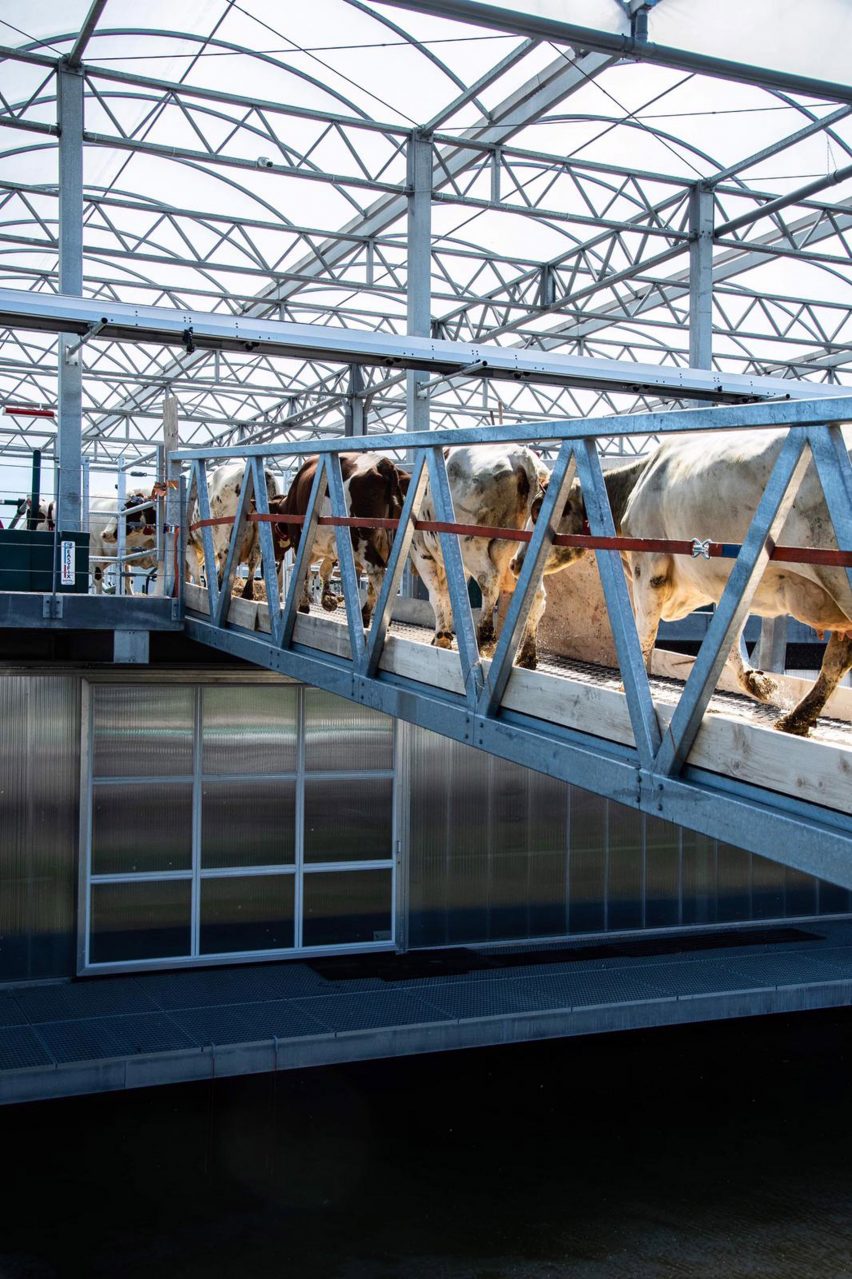
The building is deliberately as transparent as possible so that visitors can easily observe these processes. There are also education spaces on board, so groups can come and learn more about sustainable farming.
"To make the city dweller more aware of healthy food, we want to bring it close to the consumer," added the team, "to make healthy food clear, insightful and attractive in a transparent and educational way."
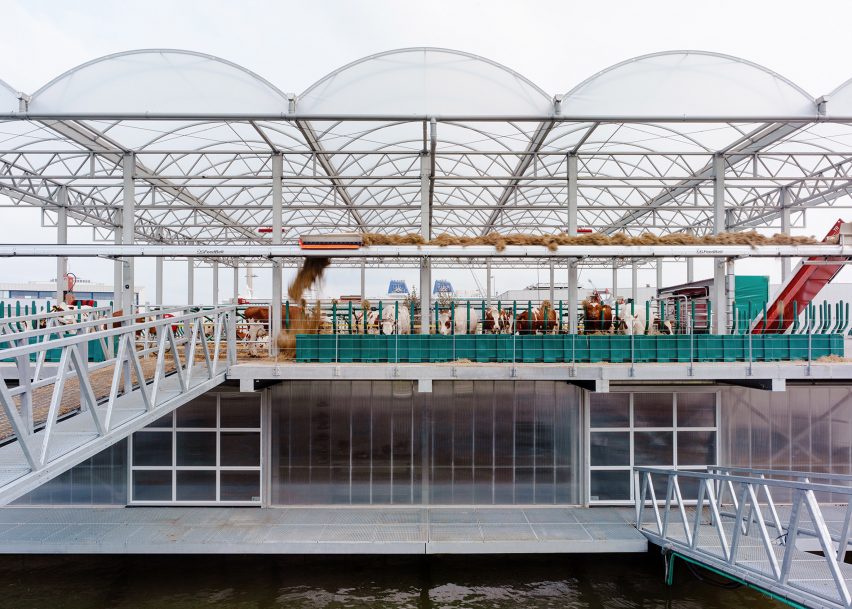
The Floating Farm is among a number of innovations coming out of Rotterdam, a city that is investing heavily in design and technology. Billed by architects as "the city of the future", it is home to studios experimenting with robotic construction and wind power, as well as floating architecture.
Rising sea levels is a particular concern for the city's creatives, as the Netherlands already suffers from frequent flooding.
It is hoped the Floating Farm will encourage more people to think about the possibilities offered by floating buildings. The farm is currently installed in Merwehaven – a port area that is set to become a new residential district for the city.
The farm is being managed by Albert Boersen, who is being described as the world's first floating farmer.
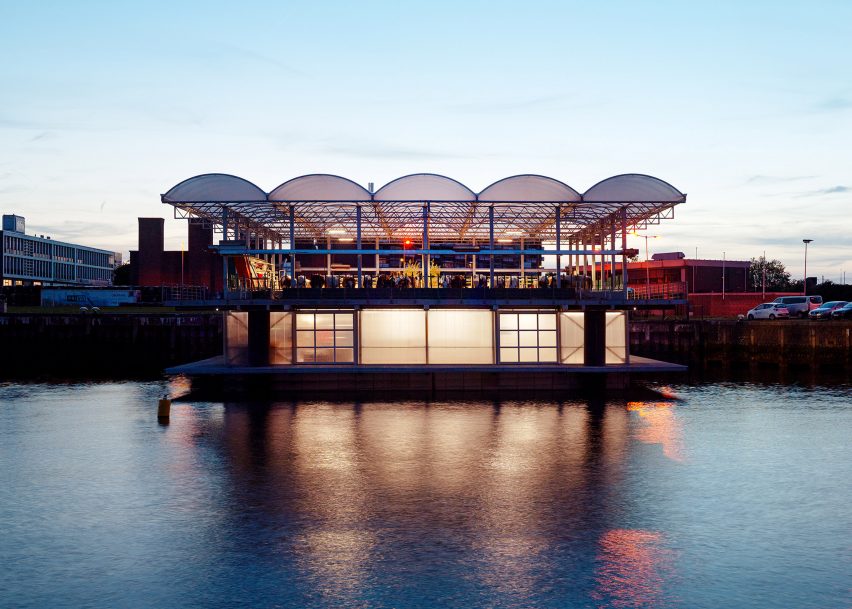
If the project proves a success, the team will move forward with plans to expand the business with a floating chicken farm and a floating greenhouse, producing fresh fruit and vegetables for the city.
The project is funded by private investors, with support from a range of industry partners.